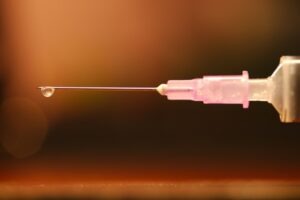Novelion Therapeutics has secured marketing authorization from the European Commission (EC) for Myalepta (metreleptin) to treat generalized and partial lipodystrophy.

Image: Head office of the European Commission. Photo: courtesy of Amio Cajander.
Subscribe to our email newsletter
Myalepta has been approved as an adjunct to diet, as a replacement therapy to treat the complications of leptin deficiency in lipodystrophy (LD) patients with confirmed congenital generalized LD (Berardinelli-Seip syndrome) or acquired generalized LD (Lawrence syndrome) in adults and children 2 years of age and above; or with confirmed familial partial LD or acquired partial LD (Barraquer-Simons syndrome), in adults and children 12 years of age and above for whom standard treatments have failed to achieve adequate metabolic control.
MYALEPTA, a recombinant analog of human leptin, is the first and only licensed treatment in Europe indicated as an adjunct to diet as a replacement therapy to treat the complications of leptin deficiency in LD patients.
MYALEPTA was granted orphan drug designation in Europe in 2012. The EC’s authorization follows the positive Committee for Medicinal Products for Human Use (CHMP) opinion on May 31, 2018.
Pricing and reimbursement negotiations with healthcare authorities have commenced and will be pursued on a country-by-country basis.
Novelion Therapeutics interim chief executive officer and chief operating officer Jeff Hackman said: “The approval of MYALEPTA in the EU is a significant advancement for patients with generalized and partial lipodystrophy and a significant milestone for our company,.
“In preparation for launch, we have worked closely with regulatory authorities, patient organizations, and healthcare professionals across Europe to ensure that generalized LD and partial LD patients in need have access to MYALEPTA as quickly as possible, subject to securing pricing and reimbursement approvals where required. With the approval to treat both generalized and partial lipodystrophy patients, and a meaningful number of these patients identified or being treated via early access programs, we believe the EU represents a significant market opportunity for metreleptin.”
Professor Stephen O’Rahilly, Professor of Clinical Biochemistry and Medicine at Addenbrooke’s Hospital, Cambridge, said, “Lipodystrophy is a rare condition which, due to its complex nature, requires highly specialized treatment. Patients with lipodystrophy have previously relied on lifestyle changes and medications, like insulin injections to manage the condition’s associated complications. Today’s milestone marks a significant change in the way lipodystrophy is treated. For the first time, we will be able to offer patients in Europe a treatment option that addresses one of the fundamental aspects of the condition itself.”
The clinical data supporting the authorization resulted from an open-label, single-arm study evaluating MYALEPT treatment in 48 patients. In accordance with the receipt of a marketing authorization under exceptional circumstances, certain risk minimization measures and post-authorization obligations will be required, including proposed studies which will further the understanding of MYALEPTA’s impact on patients with generalized and partial lipodystrophy.
About Lipodystrophy
LD syndromes are ultra-rare disorders characterized by the irreversible loss of adipose tissue. Lipodystrophy can be genetic or acquired after an immune condition and occurs in childhood or adolescence. In patients with lipodystrophy syndromes, levels of leptin are often very low.
Leptin is a naturally occurring hormone produced in adipose tissue and is an important regulator of energy homoeostasis, fat and glucose metabolism, reproductive capacity, and other diverse physiological functions.
With generalized lipodystrophy, the loss of fat affects the whole body. With partial lipodystrophy, the loss of fat typically occurs in the arms, legs, head, and trunk regions, while accumulation of fat may occur in other areas of the body, including the neck, face, and intra-abdominal regions. Generalized lipodystrophy affects approximately one person out of every one million, whereas partial lipodystrophy affects approximately three people in every one million.
MYALEPT, the U.S. brand name of metreleptin, received approval from the U.S Food and Drug Administration in February 2014, as an adjunct to diet as replacement therapy to treat the complications of leptin deficiency in patients with congenital or acquired GL. MYALEPT is not approved in the U.S. for partial lipodystrophy.
Company: Press Release.
 Advertise With UsAdvertise on our extensive network of industry websites and newsletters.
Advertise With UsAdvertise on our extensive network of industry websites and newsletters.
 Get the PBR newsletterSign up to our free email to get all the latest PBR
news.
Get the PBR newsletterSign up to our free email to get all the latest PBR
news.

